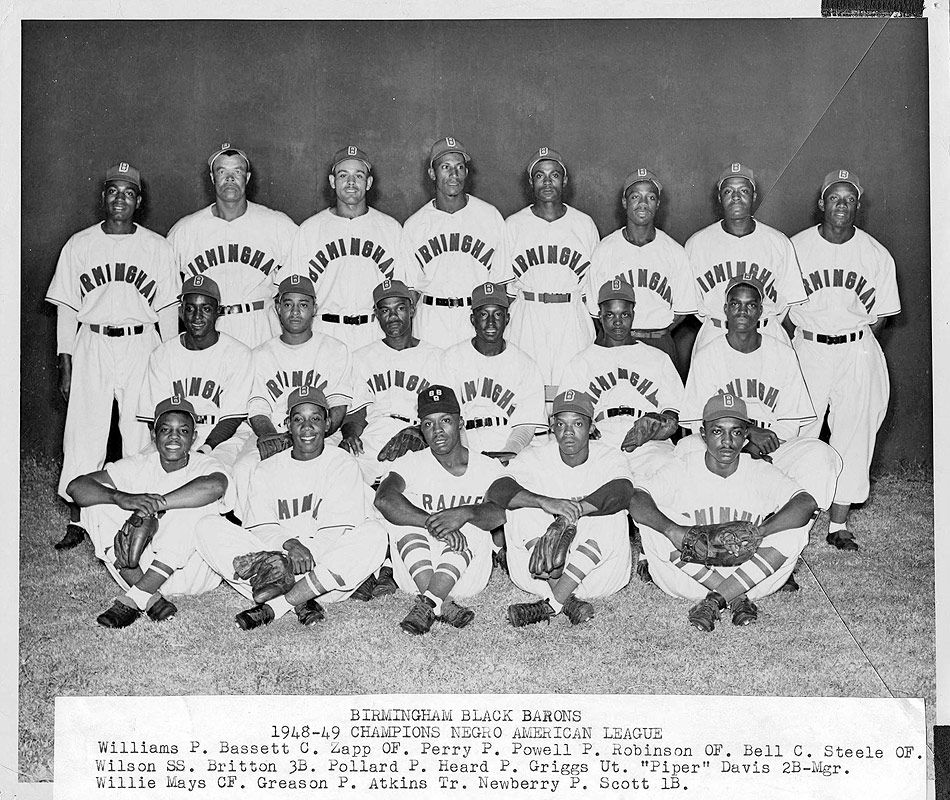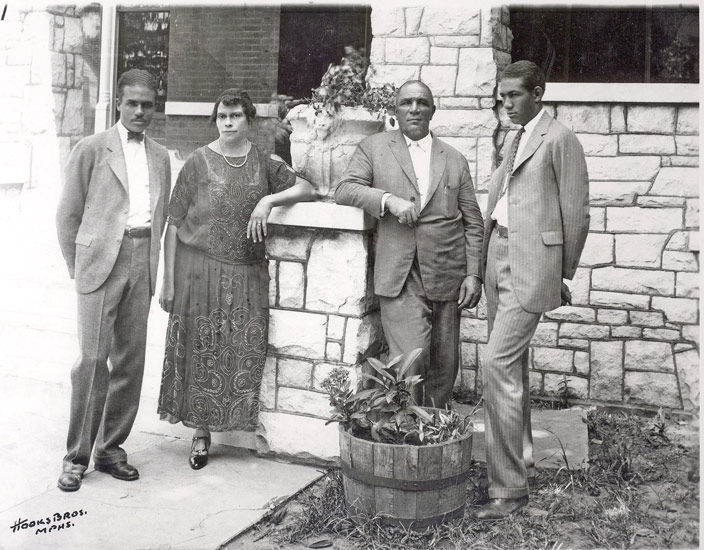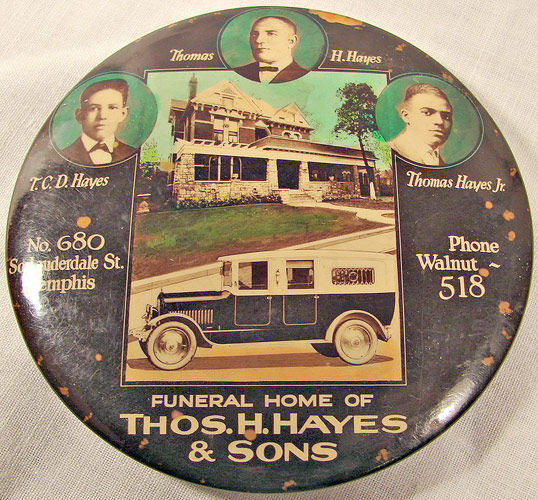A Black Business Icon and Watkins Family Friend Owned the Birmingham Black Barons Baseball Team
- Donald V. Watkins

- Aug 18, 2025
- 4 min read
By: Donald V. Watkins
Copyrighted and Published on August 18, 2025

American History ---
Thomas Henry Hayes, Jr. (1902 to1982), was a Negro American League baseball executive who served as owner and president of the Birmingham Black Barons baseball team from 1939 to 1952. Hayes is perhaps best known for selling a then-19-year-old Willie Mays to the New York Giants.
Born on November 20, 1902, in Memphis, Tennessee, Thomas Hayes, Jr., was son of Thomas Hayes, Sr., and his wife, Florence Hayes. Thomas, Sr., owned and operated T.H. Hayes & Sons Funeral Home, the oldest Black-owned business in Memphis until it closed in 2010. Sons Thomas, Jr., and Taylor Hayes worked in the business.

After attending Atlanta University, Lincoln University and the University of Illinois, Thomas Hayes, Jr., returned to Memphis to help run the family funeral home by the mid-1920s. He co-founded the Union Protective Life Insurance Company in 1933, and also operated hotels, restaurants and nightclubs in Memphis. Hayes was also a trustee at Metropolitan Baptist Church -- the Watkins family's church home in Memphis.

Taylor Hayes was president of the National Funeral Directors and Morticians Association and President of the Cotton Maker's Jubilee. Taylor's wife Frances, earned her funeral director's license and became one of the first licensed black women in the profession. Frances, who was one of my mother's best friends in Memphis, ran the funeral home for almost 70 years.

Business Networking Among Families is an Important Ingredient to Success
The Hayes family was friends with the Rev. Willie L. Varnado (my maternal grandfather), Rev. Samuel Augustus Owen (pastor of Metropoltitan Baptist Church), and my parents, Levi and Lillian Watkins, when we lived in Memphis during the late 1950s. The conversations around our dinner table on Sunday afternoons with Watkins, Varnado, Owen, and Hayes family members usually focused on business, civil rights, education, and the winds of political change in Memphis.
My first exposure to professional sports centered on Thomas Hayes, Jr.'s 13-year ownership of the Birmingham Black Barons and the business and finance of professional sports teams. I was fascinated by the business aspects of sports and was learning from one of the country's most successful black businessmen and a former sports team owner.
All but one of the Negro American League Baseball teams were owned by successful black businessmen. The League was formed at a time when every aspect of life in America was racially segregated by Jim Crow laws or social custom.
Sitting around our dinner table on a weekly basis were the most powerful back preachers in Memphis, the oldest and most successful black business family in the city, the former owner of the Birmingham Black Barons, and my father, who was the founding president of Owen Junior College in Memphis.
Looking back on it today, our Sunday family dinners with community leaders and business icons served as an incubator for forming my business goals and aspirations in life. One of them was ownership of a major league professional sports team.
Professional Baseball Team Ownership
Thomas Hayes, Jr., purchased the Birmingham Black Barons in December 1939. He also served as vice president of the Negro American League.
During his ownership of the Black Barons, Hayes began a partnership with Abe Saperstein (owner of the Harlem Globetrotters), who oversaw the clubs promotions and venue booking while Hayes retained ownership and handled player signings and negotiations. During Hayes' ownership, the Black Barons also won Negro American League pennants in 1943, 1944 and 1948.
In early 1949, Hayes sold Willie Mays, at the time 19-years-old, to the New York Giants for $10,000. Hayes reportedly gave Mays a $6,000 cut of the sale. Hayes had originally signed Mays the previous year from the Birmingham Industrial League.
By January 1952, the Black Barons had fallen into financial difficulty, with Hayes ultimately selling the club to Baltimore Elite Giants owner William Sousa Bridgeforth in February 1952.
Becoming a Majority Owner of a Major League Sports Teams Today
“If you can see it, you can be it,” was one of the mantras my parents and community instilled into my siblings and me as children.
Growing up in Montgomery, Alabama and Memphis, Tennessee, we were lucky enough to meet and learn from the strongest and most successful black business, community, civi rights, and ministerial leaders of the 1950s, 60s, and 70s. I did meet an “Uncle Tom” Negro until I started practicing law in Alabama in 1973. Today, the black community is saturated with "Uncle Toms" and most of them are striving for Jackanapes status.
One of the hardest goals I am striving to achieve in life is the majority ownership of a National Football League team. I have no interest in becoming a limited or minority partner in one of the 32 NFL teams. I want to own 100% of the team like Stan Kroenke owns 100% of the L.A. Rams.
I competed for the Anaheim Angels in 2002, but the Disney Company sold the team to Arturo Moreno.
In 2008-2009, I competed for the St. Louis Rams, but the majority owners (two Rosenbloom family members) eventually sold their 60% equity stake in the Rams to the team's 40% limited partner, Stan Kroenke.
Each time I competed for an ownership opportunity of a major professional sports team, I learned more and got better at it.
Today, I am using all of the business education and financial lessons I learned from Thomas Hayes, Jr., and New York business oil and gas business icon Charles Wallace to prepare myself to compete again for the sole ownership of an NFL team. The quest to own a major professional sports team began as a child in Memphis and is now one of the last two goals in business I seek to achieve.








It is wonderful to see a record number of limited partners in the NFL. What is missing from this picture is a Black person who actually owns a majority or controlling interest in an NFL team. There are none. I want to be that person.
Kudos to another fine editoral. Thomas Hayes Sr. reminds me of another business tycoon in Birmingham, AG Gaston, and the business empire he built in the city.
It's refreshing to hear about Hayes Sr business accomplishments and how it accommodated the black community. I refer to him as an iconic businessman considering an era when bank capital wasn't as accessible to black people even to this present day.
I recall between 2002 and 2003, you attempted to purchase the "Minnesota Twins" major league baseball franchise. I was reading the sports page of the Montgomery Advertiser on that day when you spoke about the negotiable terms which appear to fall in your favor.
I will say with confidence that with your…